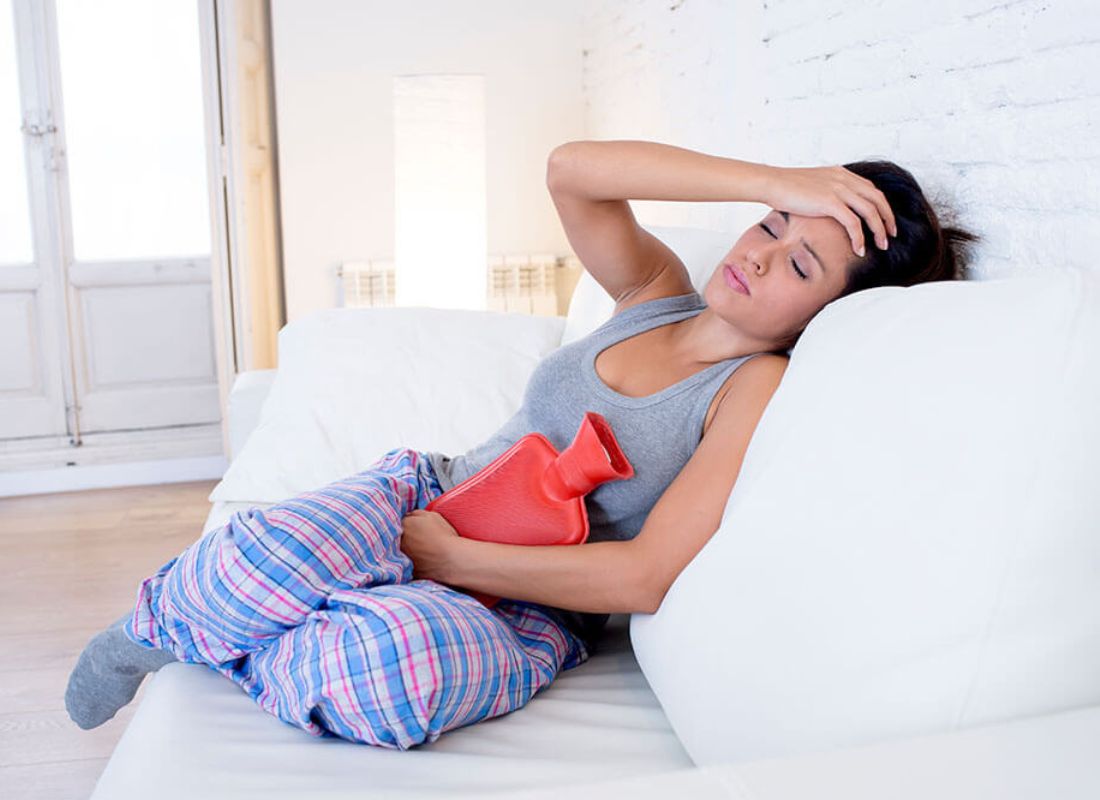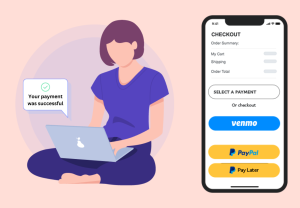Menstruation Cycle is a normal process that females undergo hormonal changes. Whereas, their bodies prepare for a potential pregnancy. Not to mention, a woman would experience various symptoms as an indication of the start of her menstruation period/cycle.
Although everyone has gone through the process of puberty regardless of gender, the transition is different between girls and boys. In girls, entering puberty would mean having the monthly period wherein blood comes out through a girl’s vagina.
Basically, your menstrual cycle can say a lot about your health. And therefore, understanding how to start tracking your menstrual cycle and what to do about irregularities is of great importance.
Learn Also: First Time Pregnancy: Everything You Need To Know
And now, the question is; do you know when your last menstrual period began or how long it lasted? If not, it might be time to start paying attention. For one thing, tracking your menstruation cycle can help you, a big team.
Definitely, you’ll be able to understand more about what’s normal or not for you during your ovulation time and identify important changes. Such as a missed period or unpredictable menstrual bleeding. And while menstrual cycle irregularities usually aren’t serious, sometimes they can signal health problems.
What Is Menstruation?
By definition, menstruation — aka having your period — is when blood and tissue from your uterus come out of your vagina. It usually happens every month. Menstruation can be unpredictable which would lead to possible future frustrations.
So, you should prepare yourself, through knowledge and the right menstrual utilities to avoid complications and problems. Your menstrual cycle helps your body prepare for pregnancy every month. It also makes you have a period if you’re not pregnant.
Important to realize, your menstruation cycle and period are controlled by hormones like estrogen and progesterone. Not forgetting, you have 2 ovaries, and each one holds a bunch of eggs. And these eggs are super tiny — too small to see with the naked eye.
What Is The Menstruation Cycle?
During your menstrual cycle, hormones make the eggs in your ovaries mature — when an egg is mature, that means it’s ready to be fertilized by a sperm cell. These hormones also make the lining of your uterus thick and spongy.
So, if your egg does get fertilized, it has a nice cushy place to land and start a pregnancy. This lining is made of tissue and blood, like almost everything else inside our bodies. It has lots of nutrients to help a pregnancy grow.
Notably, Menstruation Cycle can start as early as the age of 10 or as late as 16, and that is normal. During the time of puberty, a girl’s body begins to produce a new set of hormones that are responsible for sending signals out to her body to prepare for pregnancy every month.
During this period, your hormone levels will fluctuate. In particular, affecting your mood and energy level and symptoms will occur like mood swings, cravings, menstrual cramps, and other menstrual symptoms.
Your Menstruation Cycle Kit
About halfway through your Menstruation Cycle, your hormones tell one of your ovaries to release a mature egg — this is called ovulation. Most people don’t feel it when they ovulate, but some ovulation symptoms are bloating, spotting, or a little pain in your lower belly that you may only feel on one side.
Once the egg leaves your ovary, it travels through one of your fallopian tubes toward your uterus. If pregnancy doesn’t happen, your body doesn’t need the thick lining in your uterus. Your lining breaks down, and the blood, nutrients, and tissue flow out of your body through your vagina. Voilà, it’s your period!
If you do get pregnant, your body needs the lining — that’s why your period stops during pregnancy. Your period comes back when you’re not pregnant anymore.
When in Life do Periods Start and Stop?
At some point during puberty, blood comes out of your vagina, and that’s your first period. Most people get their first period between the ages of 12 and 14, but some people get them earlier or later than that. There’s no way to know exactly when you’ll get it, but you may feel some PMS symptoms (link to PMS section) a few days before it happens.
If you don’t get your period by the time you’re 16, it’s a good idea to visit a doctor or nurse. Read more about getting your first period. Most people stop getting their period when they’re between 45 and 55 years old — this is called menopause. Menopause can take a few years, and periods usually change gradually during this time.
After menopause is totally complete, you can’t get pregnant anymore ( learn more about menopause). Your period may start and stop around the time it did for other people you’re related to, like your mom or sisters.
What is Premenstrual Syndrome?
Premenstrual Syndrome are symptoms that a woman may have to deal with days before her actual period. Whereby, Premenstrual Syndrome (PMS) has a wide variety of signs and symptoms. Including mood swings, tender breasts, food cravings, fatigue, irritability, and depression.
It’s estimated that as many as 3 of every 4 menstruating women have experienced some form of premenstrual syndrome. Symptoms tend to recur in a predictable pattern. But, the physical and emotional changes you experience with premenstrual syndrome may vary. From just slightly noticeable all the way to intense.
And although some women/girls do experience irregular periods, it’s still normal. Not unless there are symptoms that would show otherwise. Also, know that not all the menstrual cycle is regular.
The length of a woman’s menstrual cycle is different from one woman to another, which can vary from 23 to 35 days. So, if your friend’s menstruation length is short and yours is longer, you should not worry about it since it is all normal. Still, you don’t have to let these problems control your life.
Premenstrual Dysphoric Disorder (PMDD)
In reality, there is about 85 percent of women experience premenstrual syndrome. And also, there are a few that have more severe symptoms to the point of work or personal relationship disruption.
Preferably, this is known as Premenstrual Dysphoric Disorder (PMDD). If you are wondering how you will deal with this, then here are some tips to help you alleviate the symptoms.
Including:
- Exercising
- Small and frequent meals
- Avoiding caffeine, alcohol, and sweets
- Calcium supplements
- Stress management
Generally, treatments and lifestyle adjustments can help you reduce or manage the signs and symptoms of premenstrual syndrome. Learn more about When to See a Doctor and Treating Menstruation Problems with Chinese Medicine.
How do Changes in Menstruation Cycle happen?
Eventually, the period in your 20s will not be the same as your period in the 30s and 40s. Maybe you have started to feel like you can now predict your period and its symptoms, but unfortunately, it does not remain the same throughout your life, what a bummer.
So, why do these changes happen? Well, for once it is due to your age and hormone changes. Like the perimenopause that would occur during your mid to late ’40s wherein this phase indicates that you are nearing a closure with your menstruation.
Perimenopause happens years before menopause happens. During this period, your body starts to produce less estrogen and can make your period shorter or longer, and have heavier or lighter bleeding, talk about unpredictability at its best, right?
Do the Transgender Guys get Periods?
Of course, not everybody who gets a period identifies as a girl or woman. Transgender men and genderqueer people who have uteruses, vaginas, fallopian tubes, and ovaries also get their periods.
Having a period can be a stressful experience for some trans folks because it’s a reminder that their bodies don’t match their true gender identity — this discomfort and anxiety is sometimes called gender dysphoria. Other trans people might not be too bothered by their periods. Either reaction is normal and okay.
Sometimes trans people who haven’t reached puberty yet take hormones (called puberty blockers) to prevent all of the gendered body changes that happen during puberty, including periods. And people who already get periods can use certain types of birth control. Like the implant or hormonal IUD that helps lighten or stop their periods.
Learn Also: How To Manage Heavy Periods
Hormone replacement therapy, like taking testosterone, may also stop your period. If you start taking testosterone, your period will go away. But this is reversible — if you stop taking testosterone, your period will come back. There can be some changes in your menstrual cycle before it stops for good.
Periods get lighter and shorter over time or come when you don’t expect it. You may have spotting or cramping every once in a while until you stop getting your period. And sometimes even after it seems to have stopped — this is normal. Testosterone injections make your periods go away faster than testosterone cream.
If you experience gender dysphoria when you get your period, know that you’re not alone. It may be helpful to check out our resources and find a trans-friendly doctor in your area that you can talk to.
Can I get Pregnant during my Menstruation Cycle?
In reality, you have the highest chance of getting pregnant on the days leading up to ovulation (when your ovary releases a mature egg) — these are called fertile days. Meaning, your egg lives for about 1 day after its ovary release. While sperm can live in your uterus and fallopian tubes for about 6 days after sex.
So, you can usually get pregnant for around 6 days of every Menstruation Cycle: the 5 days before you ovulate, and the day you ovulate. You can also get pregnant a day or so after ovulation, but it’s less likely. Ovulation usually happens about 14 days before your period starts — but everyone’s body is different.
Learn More: What you need to know about Hormone Replacement Therapy (HRT)
You may ovulate earlier or later, depending on the length of your menstrual cycle. Many people track their menstrual cycles and other fertility signs to help them figure out when they’re ovulating. This is called fertility awareness — some people use it to prevent pregnancy, and others use it to try to get pregnant.
Some people have very regular cycles, and other people’s cycles vary from month to month. It’s really common for young people to have irregular periods. Since your period can be unpredictable, it’s hard to know for sure when you’ll ovulate. Even if you’re carefully tracking your menstrual cycle.
So if you don’t want to get pregnant, use birth control every time you have vaginal sex. Again, do you think that tampons and pads are your only choices? Think again. Widen up your knowledge because you have more options to help you manage your period.
What are Menstrual Cups?
A menstrual cup is a type of reusable feminine hygiene product. It’s a small, flexible funnel-shaped cup made of rubber or silicone that you insert into your vagina to catch and collect period fluid. Cups can hold more blood than other methods.
Leading many women to use them as an eco-friendly alternative to tampons. And depending on your flow, you can wear a cup for up to 12 hours. And as an example, it would be Menstrual Cups like the DaisyCup. However, for starters, menstrual cups are those flexible cups that could fit inside your vagina.
Generally, while collecting the blood during the period. After all, your tampons or pads may make you feel uncomfortable, but with menstrual cups, you will feel like you are not wearing any menstrual tool at all. What’s more, is that this product is a cost-saver since it can be reused for 2-4 years or a max of 10 years!
Available brands of reusable cups include the Keeper Cup, Moon Cup, Lunette Menstrual Cup, DivaCup, Lena Cup, and Lily Cup. There are also a few disposable menstrual cups on the market, such as the Instead Softcup.
Takeaway,
As can be seen, your period will be present in your life until your late 40’s, which is why it is necessary for you to know a lot about the menstruation cycle. So that you are well aware and prepared enough for what’s next.
But remember, if you think that there’s something unusual with your period, do not delay your checkup and go to your doctor. Well, feel free to Check out this app, which makes it easy to chart your cycle and figure out your fertile days.
Related Topic Links:
- Periodontitis Symptoms & Causes
- 6 Ways to Keep Your Gums Healthy
- Daisy Menstrual Cup: Your Period
- The menstrual cycle: more than just your period
- How to Deal with a Period in Elementary School
Finally, I hope you enjoyed reading the revised guide above on how to maintain your periods, therefore, help us share with other readers online. But, if you’ll have additional contributions, please Contact Us and let us know.
Likewise, you can also share your additional opinion thoughts, suggestions, contributions, recommendations, or even questions in our comments section below. Good Luck!








